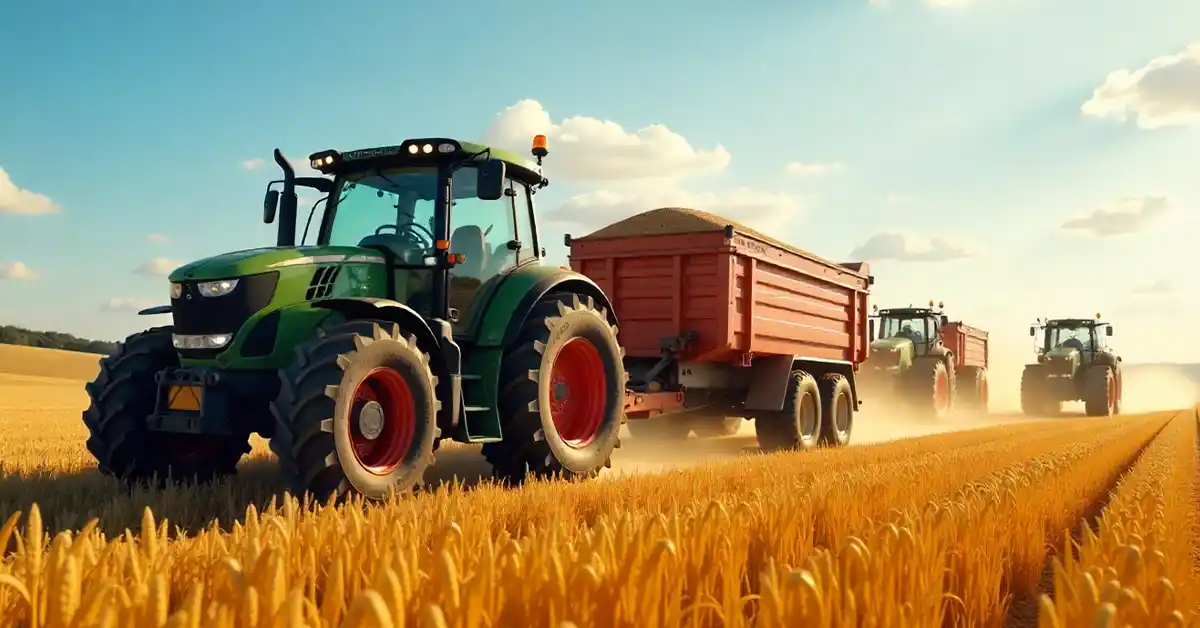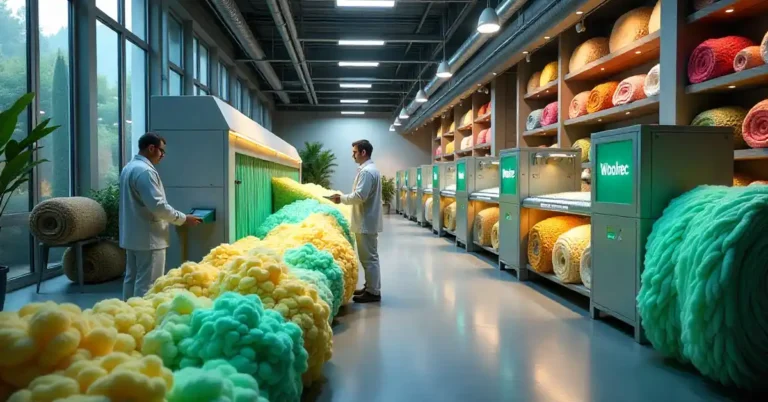Harvest season is a race against time. Every minute counts when crops are at their peak, and delays can mean lost quality and reduced profits. That’s where afruimwagens come in-these specialized harvesting trailers are designed to streamline the process, making it faster, cleaner, and more efficient. If you’ve ever struggled with juggling multiple tasks during harvest or felt the strain of manual handling, understanding how afruimwagens can transform your operation is essential.
What Exactly Are Afruimwagens?
Afruimwagens, often referred to as unloading or harvesting trailers, are robust vehicles engineered to transport harvested crops quickly from the field to storage or processing areas. Unlike standard trailers, they’re built with features tailored to agricultural needs—like high load capacities, easy unloading mechanisms, and compatibility with various harvesting machines. These trailers are designed to withstand the rigors of farm life, often constructed with durable materials that can handle the weight and bulk of heavy crops such as grains, fruits, and vegetables.
They come in various sizes and configurations, but the core idea remains the same: to reduce downtime during harvest by ensuring crops move seamlessly from the combine harvester to the next stage without unnecessary waiting or handling. Many modern Afruimwagens are equipped with advanced technology, including GPS tracking and load sensors, which help farmers optimize their operations. This technological integration not only enhances efficiency but also allows for better planning and management of resources, making it easier for farmers to keep track of their yields and logistics.
Moreover, the design of Afruimwagens often incorporates features that promote ease of use and safety. For instance, many models have low loading heights and wide ramps, making it easier for operators to load and unload crops without risking injury. Additionally, some trailers are equipped with hydraulic systems that allow for quick and efficient unloading, which is crucial during the busy harvest season when every minute counts. These advancements contribute to a smoother workflow on the farm, enabling farmers to focus on maximizing their productivity rather than dealing with cumbersome equipment.
In recent years, there has been a growing emphasis on sustainability within the agricultural sector, and Afruimwagens are no exception. Manufacturers are increasingly exploring eco-friendly materials and designs that minimize environmental impact while maintaining the durability and functionality required for agricultural operations. This shift not only aligns with global sustainability goals but also appeals to a new generation of farmers who are conscious of their ecological footprint. As the agricultural landscape continues to evolve, Afruimwagens are likely to play a pivotal role in shaping the future of efficient and responsible farming practices.
Speeding Up the Harvest Process
Seamless Crop Transfer
One of the biggest time sinks during harvesting is the transfer of crops from the combine to transport vehicles. Afruimwagens are designed to work alongside combines, often equipped with features like side or rear unloading capabilities that allow for quick, continuous offloading. This means the combine doesn’t have to stop or slow down as often, keeping the harvesting rhythm steady.
By minimizing the stops and starts, farmers can cover more ground in less time. This is especially crucial when weather windows are tight or when harvesting crops prone to rapid quality degradation. For instance, crops like sweet corn or tomatoes can lose their market value if not harvested promptly, making the efficiency of the harvesting process even more critical. The seamless integration of afruimwagens not only optimizes the physical movement of crops but also enhances the overall productivity of the farming operation, allowing farmers to maximize yield during the short harvesting season.
Reduced Waiting Times
Without afruimwagens, combines often have to wait for trucks or tractors to arrive and load the harvested crop. These delays add up, costing precious hours. Afruimwagens, being smaller and more agile, can maneuver easily in the field, getting to the combine faster and reducing idle time.
Additionally, their design allows for quick unloading at collection points, so the cycle keeps moving smoothly. The net effect? A more efficient workflow that keeps the harvest moving forward without bottlenecks. Furthermore, the reduced waiting times can lead to lower operational costs, as less fuel is consumed during idle periods. This efficiency not only benefits the farmer’s bottom line but also contributes to a more sustainable agricultural practice by minimizing the carbon footprint associated with prolonged machinery operation. As farmers increasingly adopt these innovations, the entire agricultural sector stands to benefit from enhanced productivity and sustainability.
Protecting Crop Quality with Efficient Handling
Gentle on the Harvest
Handling crops roughly can lead to bruising, breakage, or contamination, all of which reduce quality and market value. Afruimwagens are built to handle crops delicately. Their smooth unloading systems and spacious interiors prevent unnecessary compaction and damage. The design of these vehicles ensures that the crops are cradled gently, allowing for a seamless transition from field to storage without compromising their integrity. This careful approach not only preserves the physical condition of the produce but also maintains its nutritional value, which is crucial for both consumers and producers alike.
For crops like grains, potatoes, or sugar beets, maintaining quality during transport is just as important as harvesting quickly. Afruimwagens help strike that balance by combining speed with care. The efficiency of these vehicles allows farmers to transport their harvests swiftly, minimizing the time crops spend in transit. This is particularly vital for perishable items, where delays can lead to spoilage. Additionally, the ergonomic design of afruimwagens facilitates easy loading and unloading, reducing labor costs and time spent in the field, thereby enhancing overall productivity.
Minimizing Exposure to Elements
When crops sit exposed in open trailers, they risk damage from sun, wind, or rain. Many afruimwagens come with optional covers or tarps that protect the harvest during transport. This means the crop arrives at storage or processing facilities in better condition, reducing losses and improving overall yield quality. By shielding the harvest from harsh weather conditions, these covers not only prevent physical damage but also help in retaining moisture levels, essential for crops like potatoes that can suffer from dehydration.
Moreover, the use of afruimwagens equipped with protective features can significantly reduce the risk of pest infestations during transport. Open trailers can attract various pests that may compromise the quality of the harvest, leading to further financial losses. With the added layer of protection, farmers can have peace of mind knowing that their crops are safeguarded against both environmental factors and potential contaminants. This attention to detail in the handling process ultimately contributes to a more sustainable agricultural practice, ensuring that high-quality produce reaches the market efficiently and safely.
Cost Efficiency and Labor Savings
Lower Fuel and Maintenance Costs
Afruimwagens are designed to be lightweight yet durable. This means they require less fuel to tow compared to heavier, less specialized trailers. Over the course of a harvest season, these savings add up significantly.
Moreover, because they’re purpose-built for agricultural use, afruimwagens tend to have fewer breakdowns and require less frequent repairs. This reliability reduces downtime and maintenance expenses, keeping your operation running smoothly.
Reducing Manual Labor
Harvesting is labor-intensive. Every task that can be mechanized or streamlined reduces physical strain and labor costs. Afruimwagens simplify the unloading and transport process, meaning fewer hands are needed to move crops around.
With less manual handling, workers can focus on other critical tasks, improving overall productivity. This also decreases the risk of injury associated with heavy lifting or repetitive motions.
Versatility Across Different Crops and Terrains
Adaptable Designs for Various Harvests
Not all crops are harvested the same way, and afruimwagens reflect that diversity. Whether you’re dealing with grains, root vegetables, or even forage crops, there’s an afruimwagen designed to handle the specific requirements.
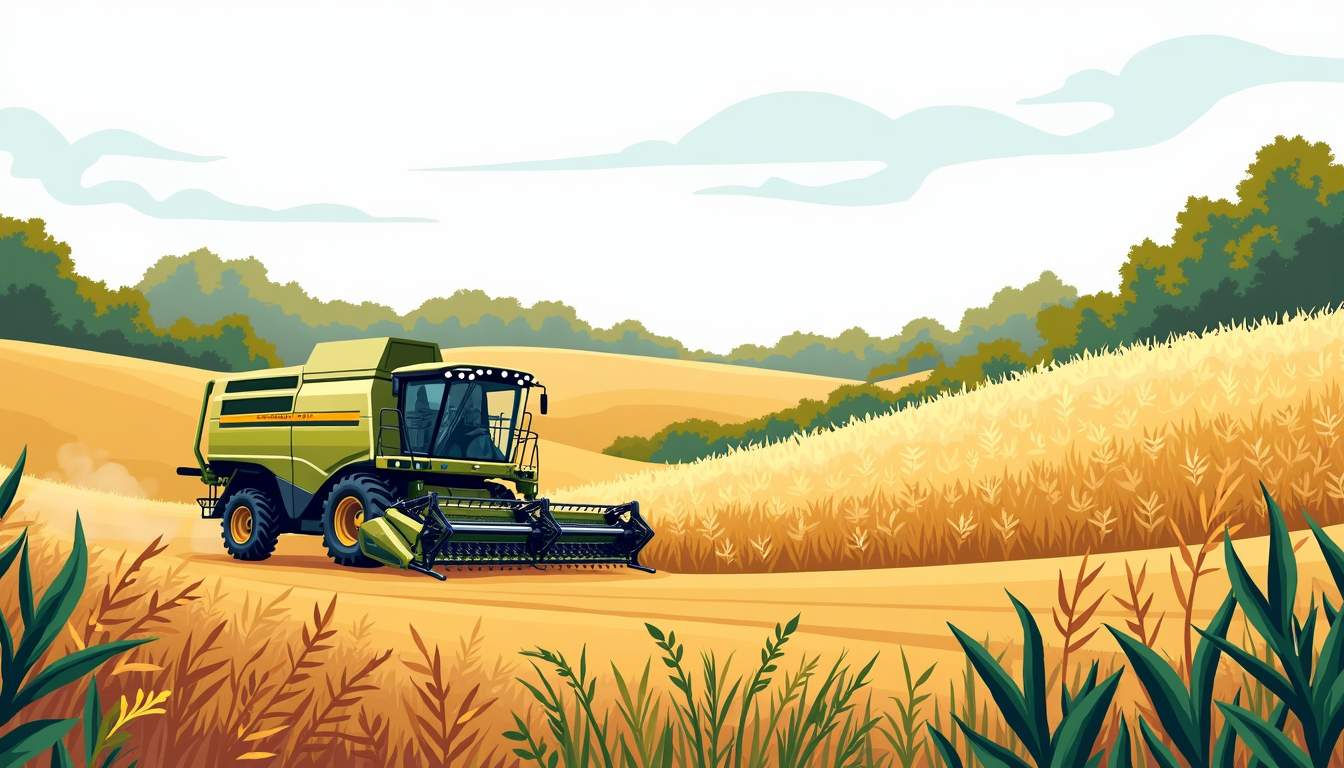
Some models feature adjustable sides or modular compartments to accommodate different crop volumes or types. This flexibility means farmers don’t need multiple trailers for different harvests, saving space and investment costs.
Handling Rough Terrain with Ease
Fields are rarely flat and smooth. Afruimwagens are equipped with sturdy suspension systems and large, rugged tires that allow them to navigate uneven ground without tipping or getting stuck. This capability is crucial during wet or challenging weather conditions when the risk of delays or accidents is higher.
Being able to operate reliably in tough conditions ensures that harvesting schedules stay on track, regardless of the terrain.
Improved Safety and Operator Comfort
Designed with Safety in Mind
Harvesting involves heavy machinery and fast-moving vehicles, making safety paramount. Afruimwagens come with features like reflective markings, stable chassis designs, and secure hitch systems to reduce the risk of accidents during transport.
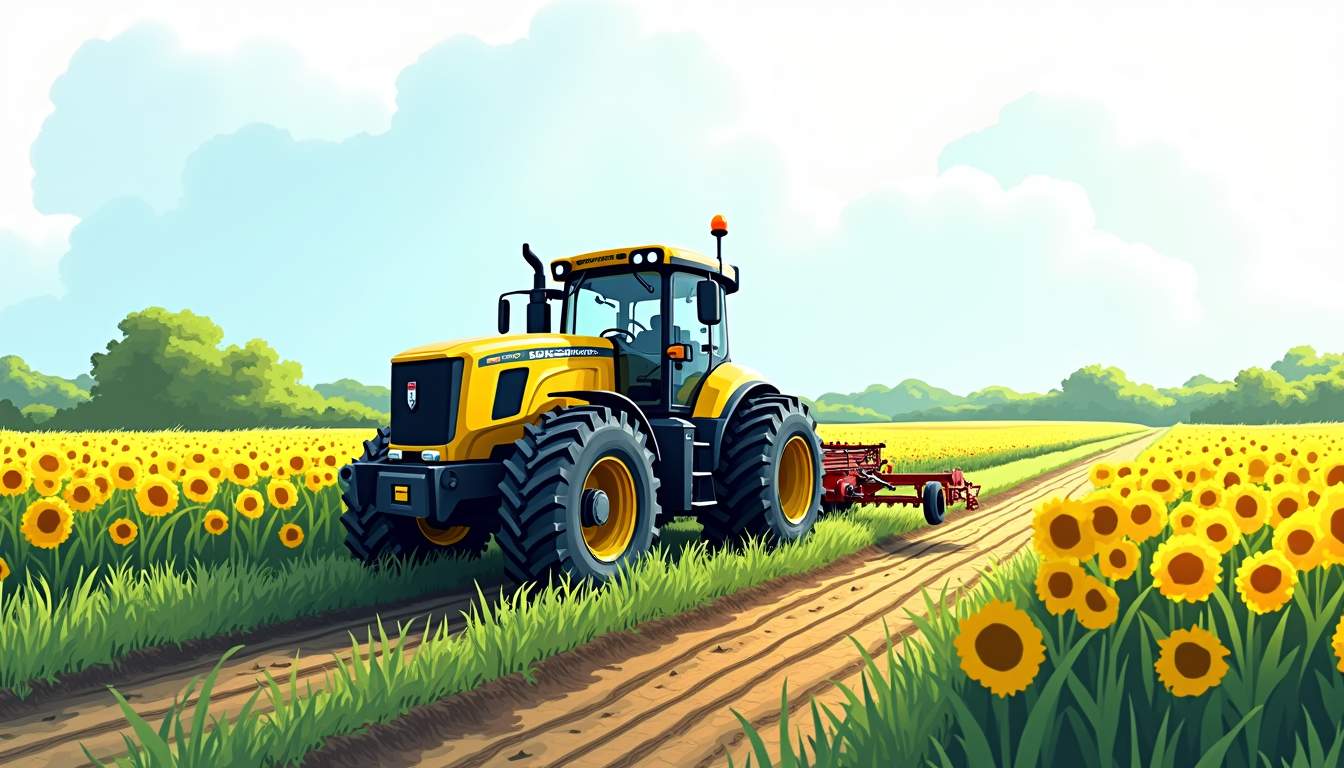
Some models also include braking systems synchronized with tractors, improving control on slopes or during sudden stops. These enhancements protect both operators and bystanders, creating a safer working environment.
Operator-Friendly Features
Comfort might not be the first thing that comes to mind with agricultural trailers, but it matters. Afruimwagens often include ergonomic controls for unloading mechanisms, making it easier and less tiring to operate them over long hours.
Some newer models even offer remote controls or automation options, allowing operators to manage unloading from the tractor cabin. This reduces the need to climb on and off vehicles repeatedly, saving time and energy.
Environmental Benefits of Using Afruimwagens
Lower Soil Compaction
Heavy machinery can compact soil, damaging its structure and reducing future crop yields. Afruimwagens, being lighter and designed for agricultural use, help minimize soil compaction compared to heavier transport vehicles.
Many models also distribute weight evenly across wide tires, further protecting soil health. This means healthier fields and better harvests in the long run.
Fuel Efficiency and Reduced Emissions
Because afruimwagens are optimized for the job, they contribute to lower fuel consumption. Less fuel burned translates directly into fewer greenhouse gas emissions, making them a greener choice for sustainable farming.
Choosing equipment that balances performance with environmental responsibility is increasingly important as agriculture moves toward more eco-conscious practices.
Conclusion: A Smart Investment for Modern Farming
Choosing the right equipment can make or break a harvest. Afruimwagens offer a combination of speed, efficiency, and care that helps farmers get the most out of their crops. They reduce downtime, protect quality, save labor, and adapt to a variety of farming conditions.
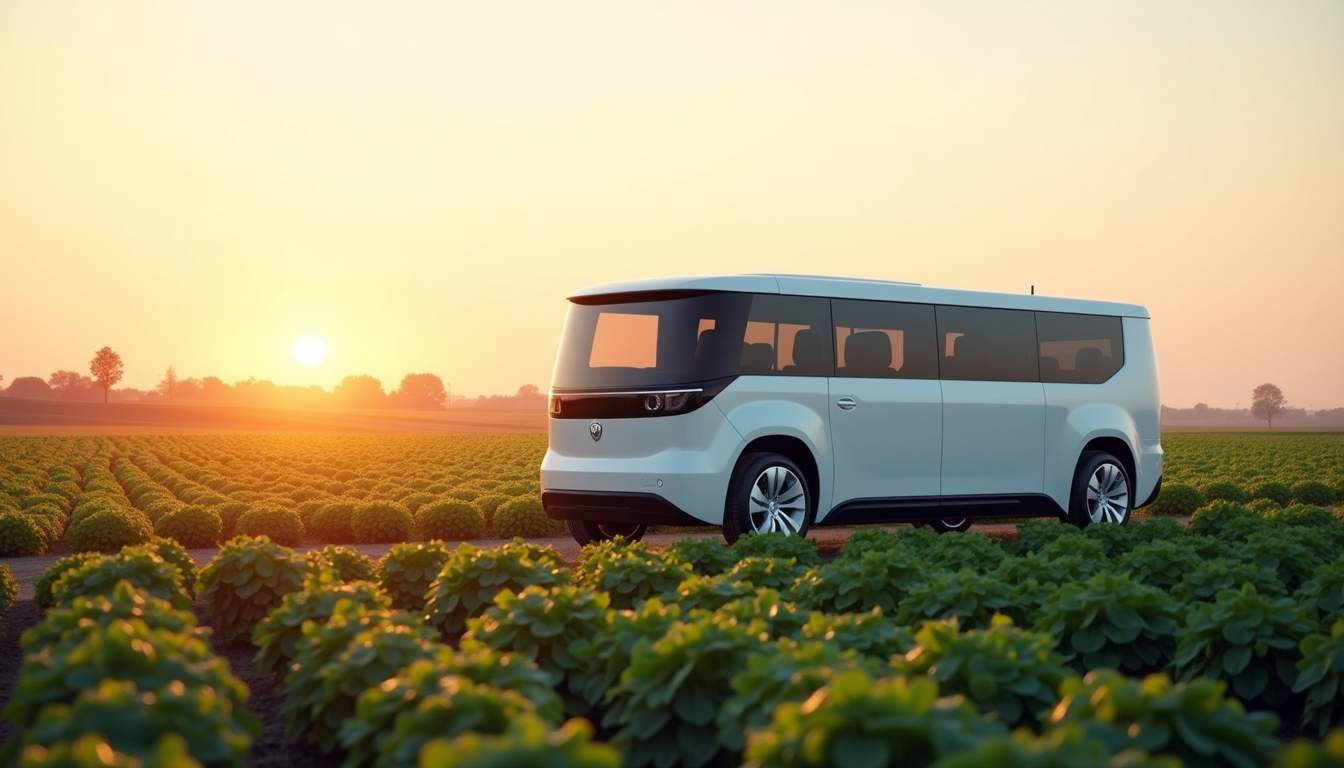
For anyone serious about improving their harvesting process, investing in a quality afruimwagen is a decision that pays dividends season after season. It’s not just about moving crops-it’s about doing it smarter, safer, and more sustainably.

